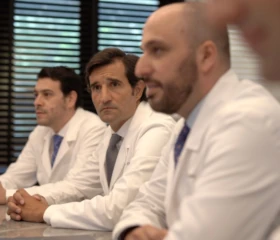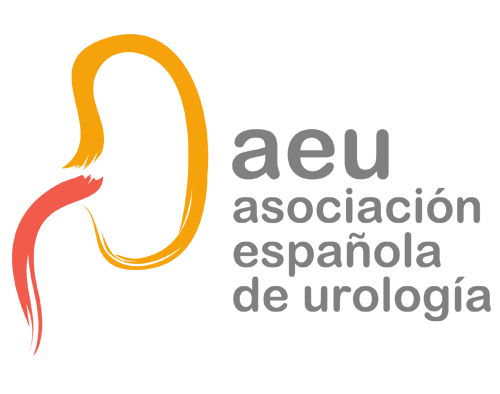Diagnosis Urine Infection
The diagnosis of a urinary tract infection is made primarily on the basis of clinical symptoms.
In the case of wanting to confirm the diagnosis, a urine culture will be performed. In patients with recurrent infections we perform imaging and functional studies of the urinary system.
- Super-specialized urologists
- Personalized treatment
- Minimally invasive approach
- More than 16,000 patients successfully treated
Diagnosis of Urinary Tract Infection
The diagnosis of urinary tract infection is made mainly on the basis of clinical symptoms such as itching when urinating, pain in the lower abdomen, feeling the need to urinate even though the bladder is empty, bleeding in the urine. In the case of wanting to confirm the diagnosis, a urine culture will be performed. If the urine culture is positive, that is, if significant bacterial growth is detected in the urine culture, we are dealing with a urinary tract infection.
When performing this test, it is important to consider some factors that could alter the results of the urine culture, such as, for example, the previous intake of antibiotics. Also, it may be the case that in a percentage of infections the germ cannot be adequately cultured in the laboratories.
Once the infection has been detected, its anatomical location must be localized. This will be done on the basis of clinical symptoms and, if necessary, by means of complementary explorations.
In patients with recurrent infections, imaging and functional studies of the urinary tract such as ultrasound and urodynamic studies are usually performed. These tests allow the detection of possible causative factors for the existence of recurrent infections.
They ask us in the Consultation
Is a urinary tract infection contagious?
No, UTI is not contagious. It is true that sexual intercourse is a risk factor for developing it, but it is not a contagious disease.
How to prevent urinary tract infections?
Drink plenty of water, avoid compulsively washing the genital area to avoid irritating it and favoring the appearance of urinary tract infection. Make sure you are well lubricated during penetration during sexual intercourse, empty your bladder completely at the end of intercourse, avoid spending too much time with a wet genital area at beaches or swimming pools, avoid using diaphragms or condoms without lubricant or with spermicide as contraceptive methods.
What are the symptoms of a yeast urinary tract infection?
Excessive discharge and itching. It does not usually cause the need to urinate frequently. The existence of back pain and fever may indicate that the infection is affecting the kidney and therefore, medical evaluation should be performed and appropriate treatment should be prescribed. In many occasions the management can be done at home with antibiotics.
Team of the Urine Infection Unit
Newsof ROC Clinic in Urine Infection
Research
Validation of the Spanish Acute Cystitis Symptoms Score (ACSS) in native Spanish-speaking women of Europe and Latin America


 +34 912 627 104
+34 912 627 104 Contact
Contact













